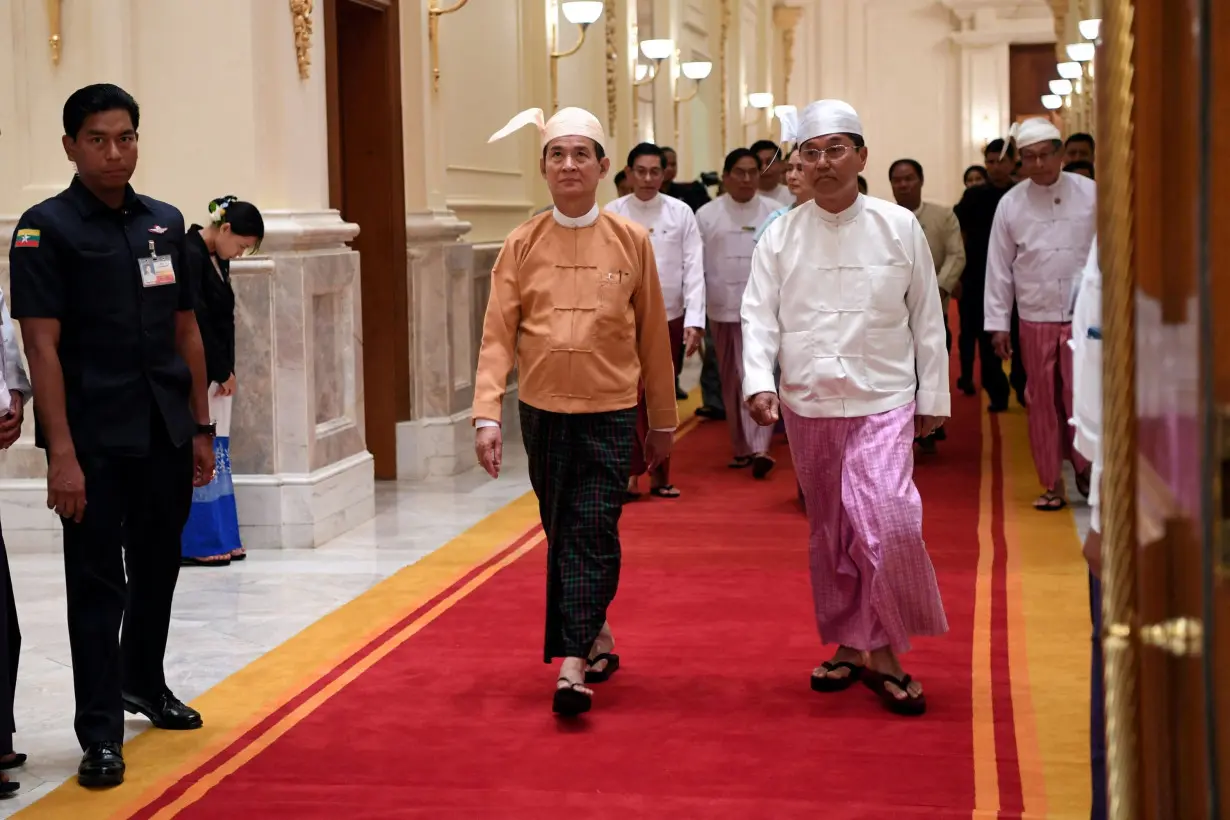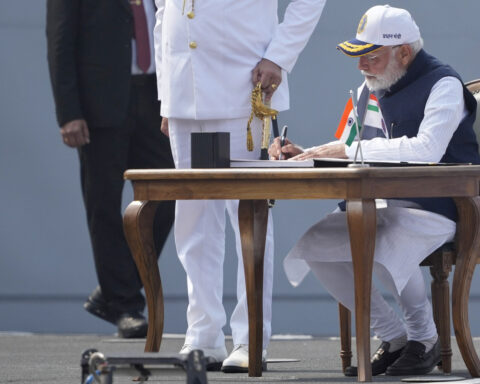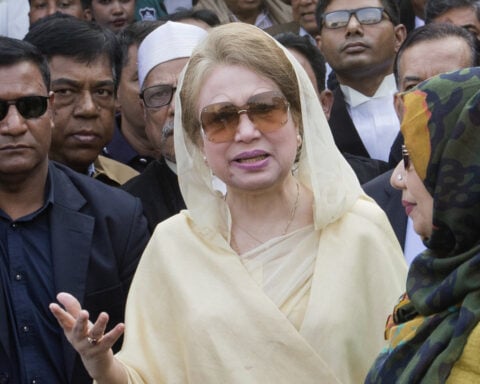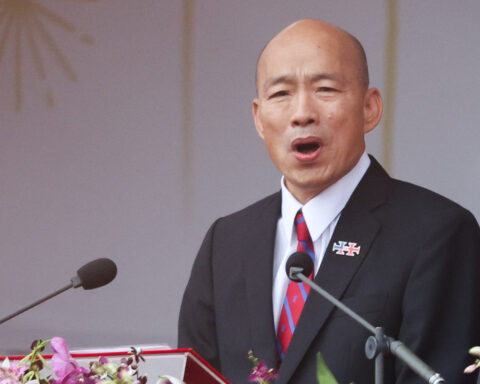(Reuters) - The nominal president of military-ruled Myanmar is suffering from serious illnesses, state media reported on Friday, in a rare statement on the health of a key junta figure just weeks before an ongoing state of emergency expires.
Myint Swe, 73, a former army officer, was vice president under Myanmar's quasi-civilian system who became head of state during a 2021 coup and immediately handed power to the military.
He has been suffering from "psychomotor retardation and malnutrition," the state-run Global New Light of Myanmar newspaper said.
"According to the medical examinations, he is suffering from neurological disorders and peripheral neuropathy disease," the newspaper said, adding that he had also undergone surgery in both eyes.
Though Myint Swe is only a figurehead, his health could pose a constitutional problem for the junta at a time when it is struggling to govern, having depended on him to sign off on its decrees and provide a veneer of legitimacy to its rule.
The military is facing its biggest challenge since taking power as an armed resistance gains grounds in large parts of the country amid a crumbling economy, piling pressure on junta boss Min Aung Hlaing, the architect of the coup.
Unable to contain a bloody, pro-democracy rebellion that has severely tested its ability to govern, the junta has repeatedly extended a state of emergency, which is due to expire on July 31, each time promising an election in future.
Myint Swe became president after the incumbent Win Myint was arrested during the coup alongside Nobel laureate and de facto leader, Aung San Suu Kyi. They have been detained ever since.
Richard Horsey, a Myanmar analyst at Crisis Group, said in the absence of any known vice presidents, there was no clear succession if Myint Swe were to step down.
"It de facto means Min Aung Hlaing would decide, but he couldn't put himself forward (as president)," he said. "This may be related to the renewed talk of elections."
State media on Friday said Myint Swe's condition had not improved even after a series of medical interventions, including treatment in Singapore.
"As he cannot do normal daily activities including eating food, close medical treatments are being provided," it said.
(Writing by Devjyot Ghoshal; Editing by Martin Petty)

 Germany sees meat exports to EU continuing after foot-and-mouth case
Germany sees meat exports to EU continuing after foot-and-mouth case
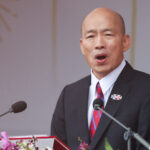 Parliament speaker to lead Taiwan delegation to Trump's inauguration
Parliament speaker to lead Taiwan delegation to Trump's inauguration
 German economy contracted 0.2% in 2024
German economy contracted 0.2% in 2024
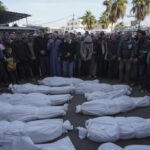 Middle East latest: Palestinian prime minister says Palestinian Authority should run Gaza in future
Middle East latest: Palestinian prime minister says Palestinian Authority should run Gaza in future
 Nokia signs multi-year patent license agreement with Samsung
Nokia signs multi-year patent license agreement with Samsung
 Irish parties secure 'comfortable majority' for new government
Irish parties secure 'comfortable majority' for new government
 Bayern Munich signs US youngster Bajung Darboe from LAFC
Bayern Munich signs US youngster Bajung Darboe from LAFC
 Novak Djokovic breaks a tie with Roger Federer for the most Grand Slam matches in tennis history
Novak Djokovic breaks a tie with Roger Federer for the most Grand Slam matches in tennis history
 China's RedNote: what you need to know about the app TikTok users are flocking to
China's RedNote: what you need to know about the app TikTok users are flocking to
